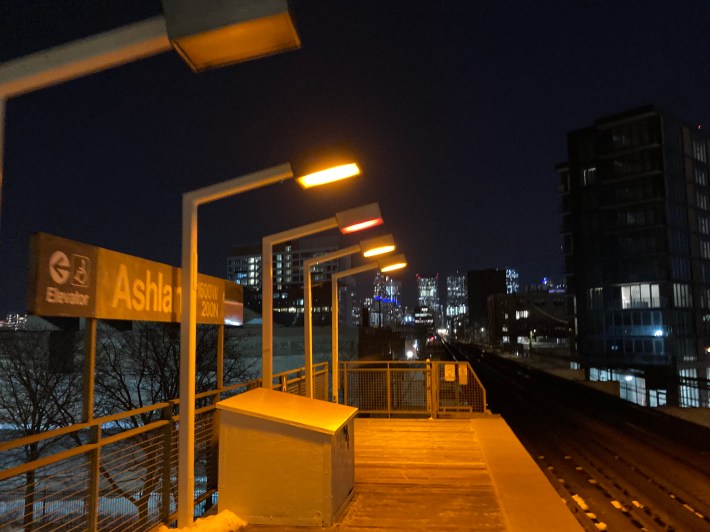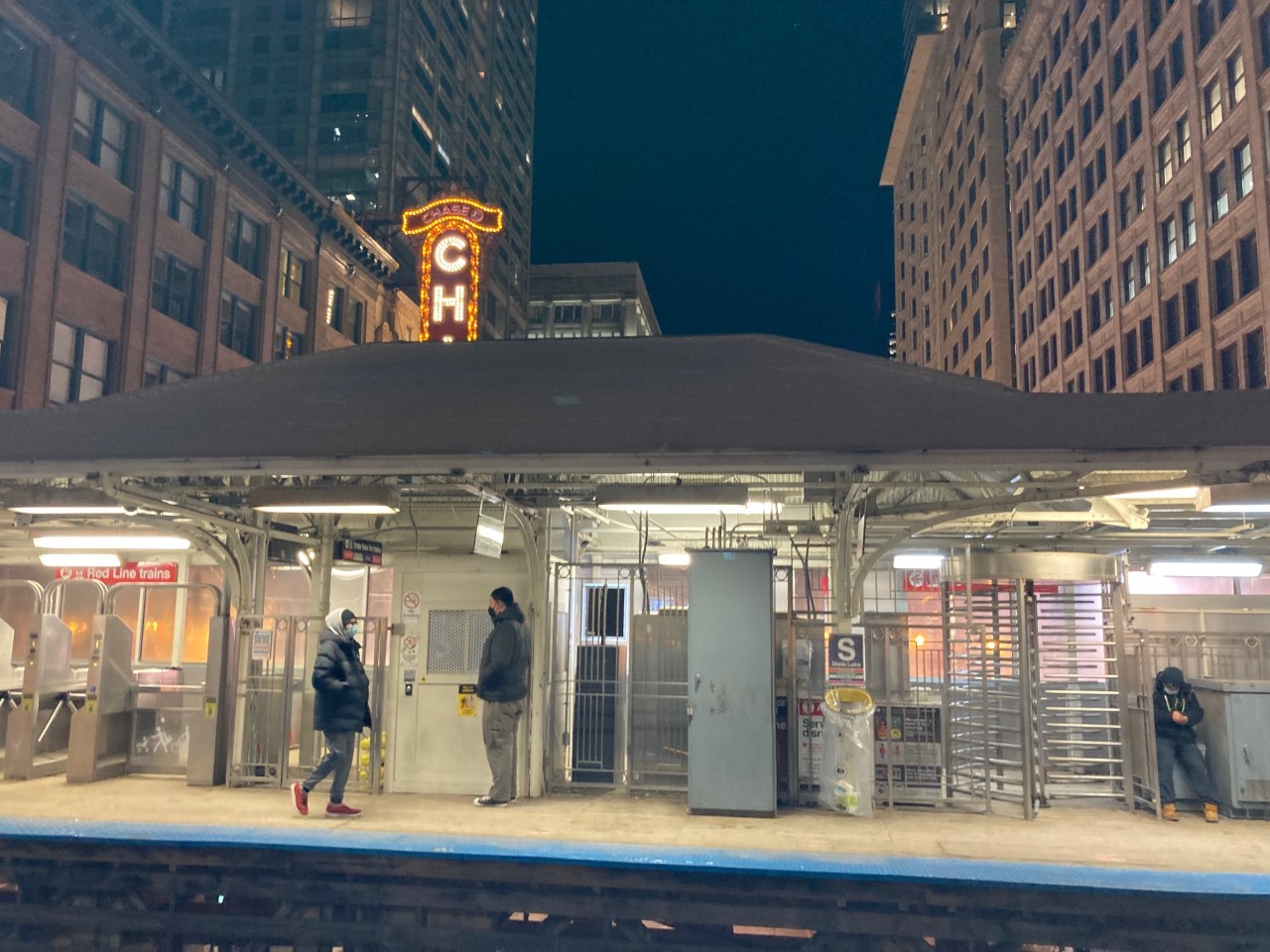Illinois governor J.B. Pritzker generally has a decent record on sustainable transportation. But while he's talked about wanting to make our state a leader in the fight against climate change, he has a frustrating blind spot when it comes to highway expansion. He's been a vocal advocate for using much of the projected $17 billion Illinois will get from the new federal infrastructure bill to add lanes to expressways and Interstates, which would encourage more driving and divert funding from sustainable transportation project.
Fortunately, the Active Transportation Alliance and 50 other sustainable transportation, environmental, and social justice advocacy organizations have teamed up to send the a letter to the governor and Illinois Department of Transportation secretary Omer Osman calling on state officials to move away from the car-centric status quo and allocate more resources to creating a safer, more efficient, more equitable, and more environmentally-friendly transportation system.
The Active Transportation Alliance says that as the federal funds are allocated, ATA and other groups plan to monitor how IDOT allocates the money in a way that aligns with a recent U.S. Department of Transportation memo that calls on states to spend federal infrastructure money in a way that will help improve our society, rather than just perpetuate car-dependence.
"To achieve these goals and solve our transportation problems, we have to stop expanding highways and embrace the full range of solutions that federal funding can support," the letter states. "IDOT has the flexibility to spend federal funds on the state’s 63 distinct public transit systems, solutions that reduce air pollution and address the climate crisis, complete streets projects that offer safe alternatives to driving such as walking and biking, ADA improvements for the disabled and mobility impaired, infrastructure to unite neighborhoods separated by freeways, and improved transit access for rural and Tribal communities."
These potential solutions include (language from the letter):
● Reconnecting communities and reflect the inclusion of disadvantaged and under-represented groups in the planning, project selection and design process.
● Improving the condition, resilience and safety of road and bridge assets consistent with asset management plans (including investing in the preservation of those assets.)
● Promote and improving safety for all road users, particularly vulnerable users.
● Making streets and other transportation facilities accessible to all users and compliant with the Americans with Disabilities Act.
● Addressing environmental impacts ranging from stormwater runoff to greenhouse gas emissions.
● Prioritizing infrastructure that is less vulnerable and more resilient to a changing climate.
● Future-proofing our transportation infrastructure by accommodating new and emerging technologies like electric vehicle charging stations, renewable energy generation, and broadband deployment in transportation rights-of-way.

The letter notes that it's especially important to invest in transit. "We know that abundant transit unlocks freedom of movement and dramatically increases access to opportunity. When people can count on the bus or train to get where they need to go, they can easily access jobs, education, medical care, culture, goods and services, and the daily life of their communities. They benefit from greater economic mobility and lower household costs."
The memo also states that transit is crucial for reducing air pollution and addressing climate change. It points out that racist 20th Century urban planning resulted in expressways being run through communities of color. "This resulted in perpetuating racial, income and health inequities, limiting economic opportunity, hastening catastrophic climate change, and exacerbating chronic disease adding to disparate health outcomes for those communities."
The letter tells Pritzker and Osman, "You have a historic opportunity to change the status quo of transportation planning to build good zero emissions public transit systems and construct infrastructure for safe walking and biking that meets the needs of communities of all sizes around Illinois." Hopefully the governor and his IDOT chief will get the message.
Here's the list of signees:
Access Living
Active Transportation Alliance
Austin Coming Together
Bike Peoria
Bike & Walk Des Plaines
Bike Walk Oak Park
Center for Neighborhood Technology
Champaign County Bikes
Chicago Area Tandem Society (CATS)
Chicago Heights Bicycle and Pedestrian Resource Center
Citizens’ Greener Evanston/Go Evanston
Climate Reality Project: Chicago Metro Chapter
Coalition for a Better Chinese American Community (CBCAC)
Community Organizing and Family Issues
Consortium to Lower Obesity in Chicago Children (CLOCC)
Chicago United for Equity (CUE)
Cycle Brookfield
The Equiticity Racial Equity Movement
Elgin Community Bikes
Elmhurst Bicycle Club
Environmental Law & Policy Center
Evanston Transit Alliance
Fox Valley Bicycle & Ski Club
Friends of Big Marsh
Friends of the East Branch DuPage River Trail
Go Green Glen Ellyn
Go Green Highland Park
Go Green Illinois
Go Green Wilmette
Illinois Environmental Council
Illinois State Alliance of YMCAs
Little Village Environmental Justice Organization (LVEJO)
McHenry County Bicycle Advocates
Metropolitan Planning Council
Midwest Sustainability Group
The Nature Conservancy in Illinois
North Lawndale Community Coordinating Council (NLCCC)
Northwest Center Chicago
Natural Resources Defense Council (NRDC)
Parents Organized to Win, Educate and Renew – Policy Action Council, Illinois
Quad Cities Bicycle Club
Respiratory Health Association
Ride Illinois
Rikosys LLC, Transport Consulting, of Champaign, IL
Rogers Park Business Alliance
Shared-Use Mobility Center
Sierra Club, Illinois Chapter
Skokie Bike Network
Springfield Bicycle Club
Starved Rock Cycling Association
Trail Advocates of Central Illinois
United Congregations of Metro East






